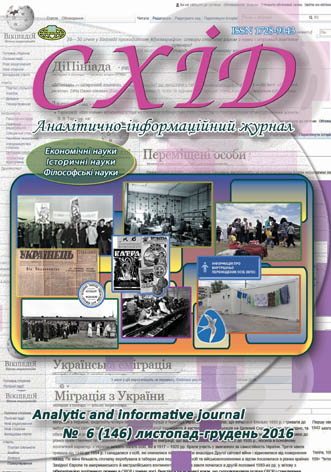The genesis of the concept of a Sunni state and government
DOI:
https://doi.org/10.21847/1728-9343.2016.6(146).83365Keywords:
Quran, Sunnah, the caliph, the caliphate, the Imamate, the ummah, the ShariaAbstract
In the article explored the period of the Sunni concept of state and government that allows us to understand the processes that shaped the modern concept of Islamic political structure of society. The genesis of the concept of a Sunni state and government includes period from the Early Islamic state till final design developed by medieval Muslim religious leaders and lawyers of the principles and norms. It is shown that this period of political organization Ummah begins from the first days of Islam, because Islamic state appears mainly to protect the newly established religious doctrine.
Sunni concept of government particularly emphasizes the non-absolute power of the Caliph. He doesn`t enjoy any privilege or immunity and he is also equal before the law like a simple Muslim. He is only a temporary leader of the Ummah. The peculiarity of this author believes state legislative functions in the absence of power - it can be administrative, executive and judiciary and aims observance and fulfillment of the divine laws. Contradictions between the executive and legislative authorities can`t be, because they are actually executing divine laws. That`s why author believes that concept of Sunni state and government this is first of all theoretical construct of nation-building than historical reality.
Downloads
References
Maverdi, E. (1976), Administrative Provisions, Istanbul, 504 p.
Al-Ghazali, A. H. (2004), Manual for Rulers and other works, Moscow, 336 p.
Ammara, M. (1991), Islamic state between Secularism and Religious Fanatism, Istanbul, 350 p.
Canan, I. (1995), Kutub-i Sitte (translation and commentary), Ankara, 490 p.
Ali-Zade, A. (2007), The Caliph, Islamic encyclopedia, Moscow, available at: http://islam-book.info/drugie-knigi-sayta/slovari-entsiklopedii.
Shakir, M. (1993), History of Islam from Adam until today, İstanbul, Kahraman yayınları.
Sukiyainen, L. (1983), State-legal theory of Islam in the modern constitutional development in developing countries, Modern Islam: the problem of politics and ideology, vol. 2,Moscow, 223 p.
Sukiyainen, L. (1985), The concept of the caliphate and the current state-legal development of the foreign east, Islam. Problems ideology, law, politics and economics, Moscow, 279 p.
Our Progress in the View of Turkish-Islamic Synthesis While Entering a New Century (1988), İstanbul, Aydinlar Ocagi.
Krachkovsky, I. Y., transl. (1963), Koran, Moscow, 1320 p.
Brockelmann, С. (1943-1949), History of Arabic literature, Leiden, available at: http://referenceworks.brillonline.com/browse/brockelmann.
Khalikov, A. (2003), Muslim law, Dushanbe, 164 p.
Halim pasha, S. (1991), Our successes and latest works, Istanbul, 304 p.
Downloads
Published
How to Cite
Issue
Section
License
Copyright (c) 2017 Kostiantyn Kachan

This work is licensed under a Creative Commons Attribution-NonCommercial-NoDerivatives 4.0 International License.
1. Authors bear responsibility for the accuracy of facts, quotations, numbers and names used.
2. Manuscripts are not sent back.
3. The publisher does not always agree with the authors' opinion.
4. The authors reserve the right to authorship of the work and pass the first publication right of this work to the journal under the terms of a Creative Commons Attribution-NonCommercial-NoDerivatives 4.0 International License. This license allows others to distribute (copy) the published work for non-commercial purposes, provided there is mandatory attribution to its authors and a link to the first publication in our journal.
5. The authors have the right to conclude separate supplement agreements that relate to non-exclusive work distribution in the form in which it has been published by the journal (for example, to upload the work to the online storage of the journal or publish it as part of a monograph), provided that the reference to the first publication of the work in this journal is included.

